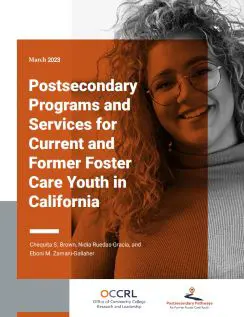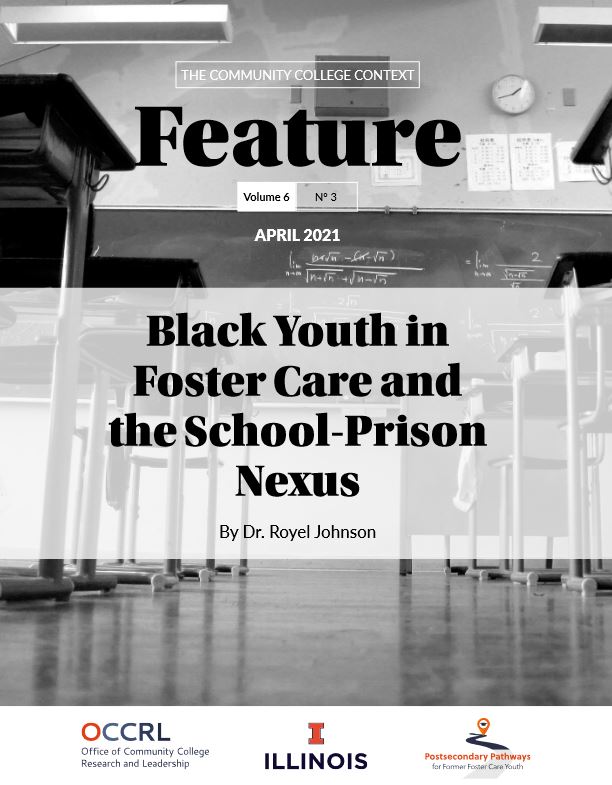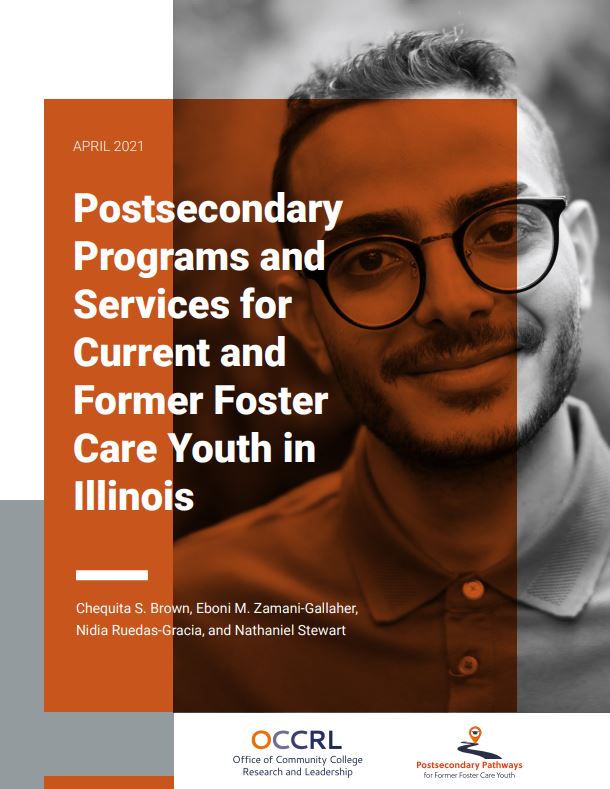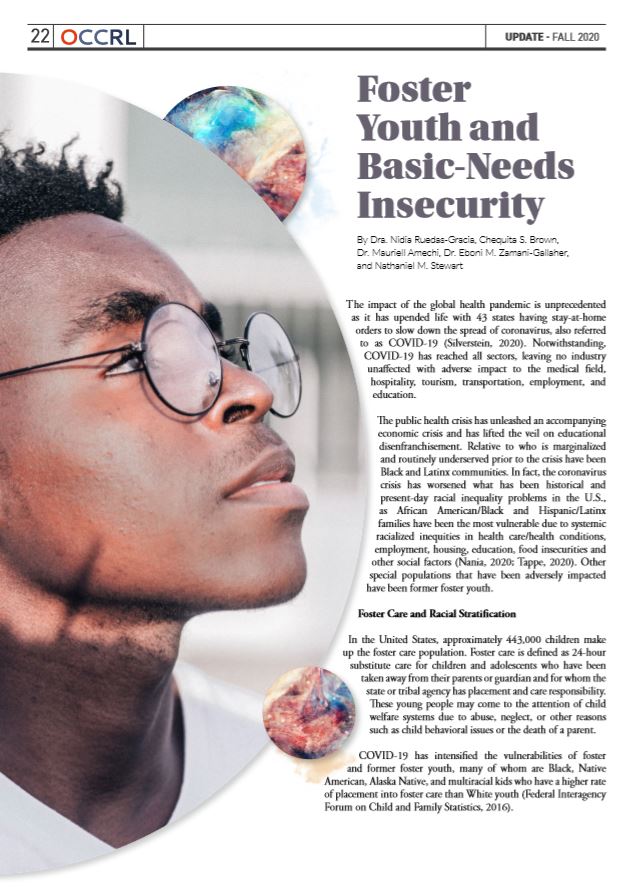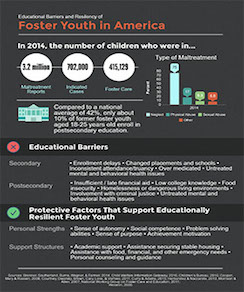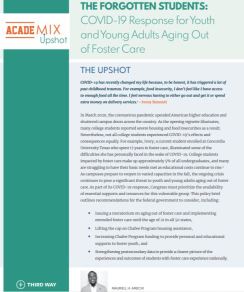
Postsecondary Pathways - for Former Foster Care Youth
This project has been completed and is no longer active.
However, we hope you are able to utilize its resources.
The Postsecondary Pathways for Former Foster Care Youth (PP-FFCY) reflects OCCRL’s commitment to examining and developing postsecondary pathways that support mobility for first-generation, underserved, and minoritized populations, as well as strengthening career pathways to promote seamless transitions from college to careers. This project endeavors to examine postsecondary access, opportunities, and supports for foster youth in Illinois and other states across the county in addressing access and outcomes of FFCY in Career Technical Education (CTE).
Purpose
The Postsecondary Education Pathways for Former Foster Care Youth (PP-FFCY) project is an exploratory study focused on postsecondary pathways for current and former foster youth in Illinois. OCCRL is conducting a comprehensive-needs assessment that provides a descriptive profile of current and former foster youth populations in Illinois; examines postsecondary access, opportunities, and supports for foster youth in Illinois; and addresses disparities in career and technical education (CTE) programs. This project reflects OCCRL’s commitment to examining and developing postsecondary pathways that support mobility for first-generation, underserved, and minoritized populations as well as strengthening and supporting career pathways to promote seamless transitions from college to careers.
Resources
OCCRL aims to increase postsecondary awareness, access, and attainment for current and former foster care youth by providing information on programs and other resources that offer holistic support and services. View the list of postsecondary programs and services.
Strategies to Cultivate a Foster-Friendly Culture on Community College Campuses
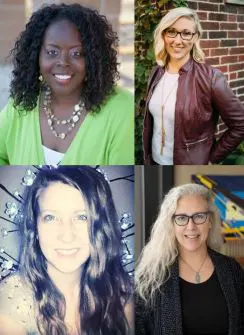 In this episode, Chequita Brown talks with Kate Danielson of the organization Foster Progress, as well as with Anna Wandtke and Tricia Wagner of Rock Valley College in Rockford, Illinois. The group discusses how to cultivate a foster-friendly culture at Illinois community colleges.
In this episode, Chequita Brown talks with Kate Danielson of the organization Foster Progress, as well as with Anna Wandtke and Tricia Wagner of Rock Valley College in Rockford, Illinois. The group discusses how to cultivate a foster-friendly culture at Illinois community colleges.
Navigating College as a Foster Care Alum
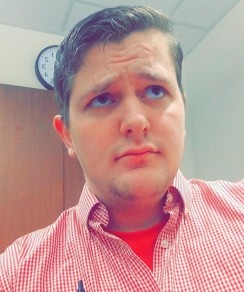 In this episode, OCCRL research assistant Chequita S. Brown talks with Jonathan Stacy, a sophomore at Heartland Community College who is pursuing his studies and a possible career in criminal justice.
In this episode, OCCRL research assistant Chequita S. Brown talks with Jonathan Stacy, a sophomore at Heartland Community College who is pursuing his studies and a possible career in criminal justice.
Listen to the podcast and view the transcript.
Key Elements to Successfully Connecting Foster Care Youth to Educational Resources for Postsecondary Success
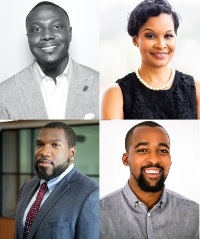 In this episode, Nathaniel Stewart talks with Mauriell Amechi, Regina Gavin Williams, and Blayne Stone Jr. about how the transitions and pathways to postsecondary education are similar and different for Black former foster care students. The scholars also discuss key elements to successfully connect foster care youth to educational resources that help advance the postsecondary education opportunities for this student population.
In this episode, Nathaniel Stewart talks with Mauriell Amechi, Regina Gavin Williams, and Blayne Stone Jr. about how the transitions and pathways to postsecondary education are similar and different for Black former foster care students. The scholars also discuss key elements to successfully connect foster care youth to educational resources that help advance the postsecondary education opportunities for this student population.
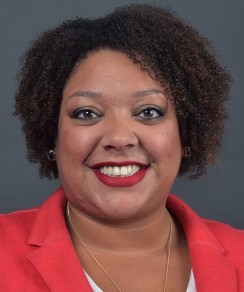
Maddy Day
The Impact of Campus-Based Support Programming on Foster Care Collegians' Postsecondary Access and Retention
In this episode, Chequita Brown of OCCRL talks with Maddy Day about the Fostering Success initiative in Michigan and the impact of campus-based support programming on foster carecollegians' postsecondary access and retention.
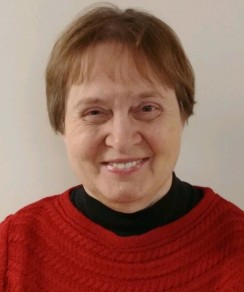
Patricia Palmer
How Youth-in-Care in Illinois Can Access Educational Resources to Pursue a Postsecondary Education
In this episode, OCCRL research assistant Chequita Brown continues the conversation on foster care youth by talking about with Patricia Palmer about accessing available resources in Illinois for youth-in-care who want to pursue a postsecondary education.
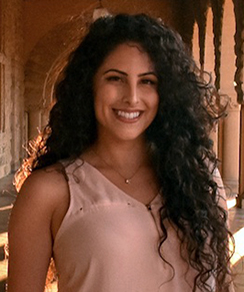
Nidia Ruedas-Gracia
Conceptualizing 'Sense of Belonging' Among Students From Historically Minoritized Racial Groups Within Higher Education
In this episode, Colvin Georges Jr., a research associate at OCCRL, talks with Dr. Nidia Ruedas-Gracia about what it means to have a sense of belonging and discusses her research in this area. They also discuss how a sense of belonging affects college students from historically minoritized racial groups.
Postsecondary Programs and Services for Current and Former Foster Care Youth in California
By Chequita S. Brown, Nidia Ruedas-Gracia, and Eboni M. Zamani-Gallaher
This brief highlights postsecondary programs and services in California that support youth in care, in addition to young adults who are aging out of foster care. Read more.
Tracking College-to-Career Pathways for Foster Youth
By Chequita S. Brown
In this OCCRL Thought Paper, Chequita S. Brown relates how tracking the data of students with foster care experience helps to recognize them as a legitimate student population. She offers recommendations on how to do this and conveys the many obstacles that can hinder the academic and career success of foster youth. Read more.
Black Youth in Foster and the School-Prison Nexus
By Royel Johnson
In this OCCRL Feature Brief, Dr. Royel Johnson argues that the foster care system, and more specifically congregate care facilities, are part and parcel to the enhancement of carceral state power. Read more.
Postsecondary Programs and Services for Current and Former Foster Care Youth in Illinois
By Chequita S. Brown, Eboni Zamani-Gallaher, Nidia Ruedas-Gracia, and Nathaniel M. Stewart
This research brief provides an overview of programs and services that helps strengthen postsecondary pathways for current and former foster youth in Illinois. Read more.
Foster Youth and Basic-Needs Insecurity
By Dra. Nidia Ruedas-Gracia, Chequita S. Brown, Dr. Mauriell Amechi, Dr. Eboni Zamani-Gallaher, and Nathaniel M. Stewart
This article discusses how COVID-19 has intensified the vulnerabilities of foster youth and former foster youth, many of whom are Black, Native American, Alaska Native, and multiracial children who have a higher rate of placement into foster care than White youth (Federal Interagency Forum on Child and Family Statistics, 2016). Read more.
(From the Fall 2020 UPDATE on Research and Leadership)
Exploring Equity in Postsecondary Education
By Heather L. Fox, Eboni M. Zamani-Gallaher
This chapter examines how postsecondary practitioners are encouraged to work collaboratively with child welfare agencies and other community-based organizations to identify and implement culturally responsive supports for former foster youth to promote early academic achievement. Read more.
The Forgotten Students: COVID-19 Response for Youth and Young Adults Aging Out of Foster Care
By Mauriell H. Amechi
This policy brief outlines recommendations for Congress to consider regarding the country's COVID-19 response, in an effort to prioritize the availability of essential supports and resources for youth and young adults who are aging out of foster care. Read more.
Central Illinois Program Creates Postsecondary Pathways for Youth in Foster Care
It’s 9:15 on a Saturday morning and youth begin to sluggishly saunter into a room. There’s a faint whisper of “Good morning” barely escaping one First Star Scholar’s lips as he finds a seat, creates a square with his arms, and tucks in his head in an attempt to catch a few moments of sleep. As music plays in the background, a staff member exclaims “Gooooood morning—hey, hey, good morning!” The Scholars hear the call to attention and slowly reposition their bodies, a sign of engagement. “Welcome to Saturday Academy!” says Dr. Deneca Winfrey Avant, director of First Star Academy at Illinois State University (ISU). “Scholars, it’s good to see you!”
First Star Academy at ISU was launched in 2017 to serve high school students who receive foster-care services in central Illinois. Participants are identified as First Star Scholars and receive academic support, mentoring assistance, and engage in enrichment activities, helping them gain life guidance and college-prep skills.
Established in 1999 at UCLA, First Star Academy helps create pathways for the successful transition of foster youth to college and career preparatory programs and services. The Saturday Academy is a major component within the organization, an international college preparation program for foster youth. Through partnerships with child-welfare agencies, school districts, and universities, youth participants attend monthly Saturday Academy sessions throughout the schoolyear that focus on academic mentoring and life-skills workshops. First Star Academy has expanded its reach during the last two decades and now has 12 academies that serve more than 400 students, including at ISU.
Additionally, youth and teens participate in a residential summer immersion program on a selected university campus. As of 2019, First Star program outcomes helped lead to a 98% high school graduation rate among foster youth who completed the four-year program, and an 88% college enrollment rate that included both two-year and four-year institutions (First Star, 2019).
One First Star Scholar said she appreciated the opportunity to get the college experience and the 'extra support of another family.'"
One First Star Scholar at the ISU academy said she appreciated the opportunity to get the college experience and the “extra support of another family.” Another attendee reiterated the familial importance of the program, saying, “It gives me confidence in knowing that I’ll always have someone in my life to back me up.”
First Star staff members at ISU are preparing for the summer immersion program, which is scheduled for three weeks in June. First Star Scholars in the program will engage in English, math, life-skills, and artistic-expressions classes. Participants will also have the opportunity to complete the credit-bearing course College Success through a partnership with nearby Heartland Community College.
The summer immersion program includes fun and downtime as well. While building lasting connections with peers, the First Star Scholars will participate in a range of enrichment activities such as college tours, trips to museums and waterparks, fitness and recreation activities, and mentoring opportunities with ISU staff and faculty members.
The leadership of Drs. Deneca Winfrey Avant and Doris M. Houston has been central to the success of First Star Academy at ISU. The program is administered through the Center for Child Welfare and Adoption Studies and funded by the Illinois Department of Children and Family Services, as well as by a private donor.
ISU is currently recruiting First Star youth for the organization's 2019-2020 cohort. Individuals who are interested in joining the First Star family at ISU are encouraged to apply and can attend an informational orientation to learn more about the programs, orientation, and services. The event will take place on Tuesday, February 18. All potential scholars, caregivers, and caseworkers are required to attend the orientation.
Contact Deneca Winfrey Avant for more information about the program.
Reference
First Star Impact Report. First Star (2019).